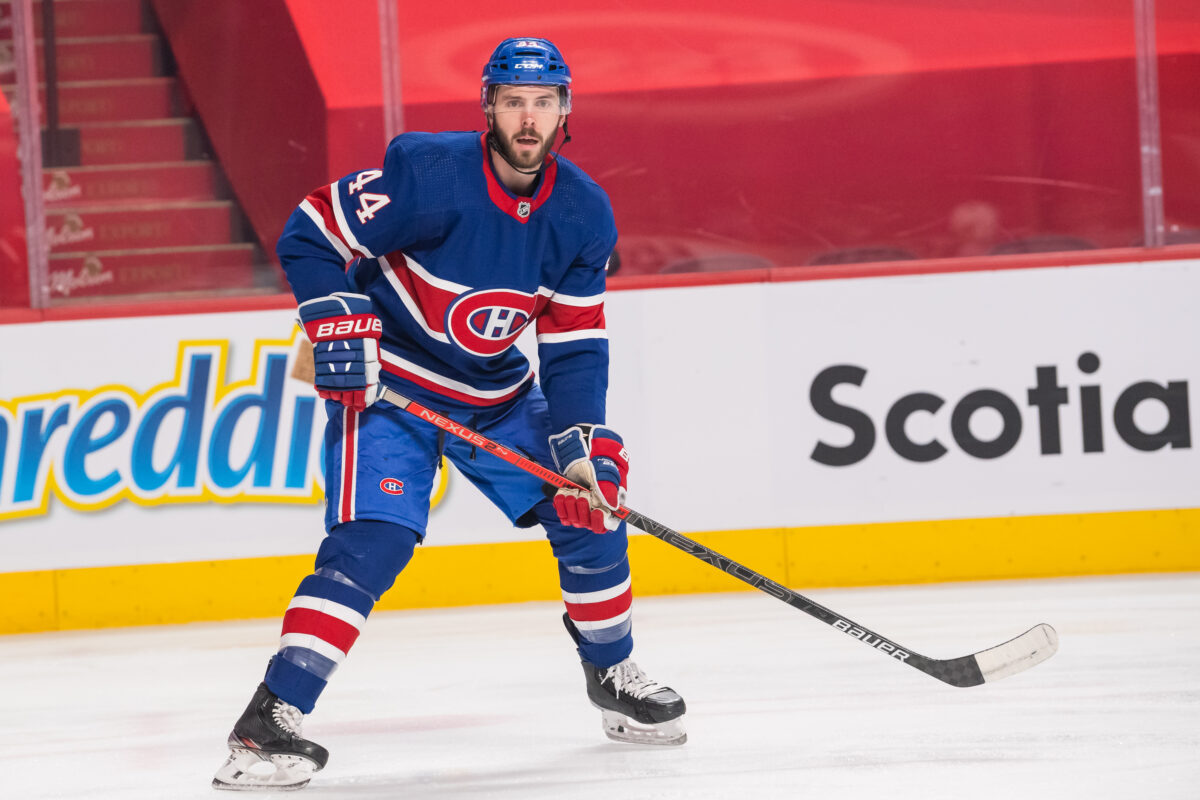Tampa Bay Lightning head coach Jon Cooper tried to downplay the “David vs. Goliath” angle prior to Game 1 of the Stanley Cup Final against the Montreal Canadiens. The 5-1 final score for the Lightning didn’t exactly support his thesis.

“You look back at the preseason predictions… I think everybody had Montreal at the top of the [North] division [with Toronto],” he said during his pre-game media availability. “I think Montreal is built for the playoffs. I think they’re exactly where they thought they would be… They look like the Cinderella team, but I don’t believe that for a second. Nobody does in our locker room.”
Lightning Power Play vs. Canadiens’ Penalty Kill
The degree to which the Lightning won is at least an indication the Canadiens have a lot to change ahead of Game 2 to make this a worthwhile series. However, in at least one way the Canadiens had proven they could hang with the Lightning these playoffs, without so much as having faced them in over 15 months (a 4-0 victory in March 2020, just days before the league shut down due to the COVID-19 pandemic): Their league-leading 93.3% penalty kill heading in, which had given up less goals (three) than it had scored shorthanded (four). It was seen as being able to counteract the Lightning’s 37.7% power play ahead of Game 1 (second to only the Colorado Avalanche’s 41.4%).
True story, when Steven Stamkos scored late in the third against the Habs on the power-play to give the Lightning one marker in three opportunities, their efficiency on the man advantage that game actually decreased it overall. In effect, the numbers are awe-inspiring on both sides, with the Habs having gone a record 13 games without allowing a power-play goal, a span of 30 straight kills that got extended to 32 before Stamkos snapped it.

The last goes back to the Canadiens’ first-round Game 4 defeat to the Toronto Maple Leafs. After that game (another decisive four-goal, 4-0 defeat), the Canadiens faced a 3-1 series deficit and many had written them off with good reason. For example, forward Joel Armia had said in post-game comments: “It’s not over yet. We have a good atmosphere in the locker room. Everybody knows that it’s not over and we’re going to work hard for next game.”
Now, Armia didn’t say it with any kind of visible resolve, to the point that it came across as though he was just paying lip service to the reporters attending virtually. Even if he had though, the Canadiens had just lost by four goals for the second time in the series and were staring down the barrel of a quick first-round exit.
Nobody, at least nobody outside the Canadiens’ room, had good reason to believe him or in the Habs and their ability to see through the monumental task ahead of them at that point. For the Canadiens, who had just snuck into the playoffs with the lowest amount of points of any of the 16 teams that had qualified (59) and were facing the top-seeded Leafs (against whom they had gone 3-6-1 in the regular season), it was as good as over.
Canadiens Lose Game and Identity
To Armia’s credit, he put his money where his mouth was, pacing the Canadiens to a 2-0 lead in Game 5, which they would eventually win 4-3 on overtime. Truly, there’s good reason to believe the Canadiens aren’t still playing today without Armia, not just in reference to his performance that game, but throughout these playoffs, including on the penalty kill, on which Armia has played 1:57 per game and scored two of their four shorthanded goals.

Armia obviously wasn’t in the lineup for Game 1, having been placed in COVID-19 protocol as a precaution. Since having cleared, he made his way to Tampa Bay via private jet, but was still kept out of the game, with coach Luke Richardson opting to go with Jake Evans instead, the latter’s first taste of action since sustaining a concussion on Winnipeg Jets forward Mark Scheifele’s infamous hit in Game 1 of the second round.
Clearly, the Canadiens didn’t lose Game 1 against the Lightning because Armia wasn’t in the lineup. There’s little way of even telling whether or not the Lightning score on that late power play if Armia’s on the ice. Regardless, the opportunity afforded to the Lightning and Stamkos on a late five-on-three man advantage is indicative of the uphill battle the Canadiens face. With Jesperi Kotkaniemi already in the box for a retaliatory high-stick/hit on Erik Cernak, Joel Edmundson ill-advisedly opted to punch Yanni Gourde in the face, for the Habs’ second straight undisciplined penalty.

Granted, Gourde was no innocent, seemingly giving as good he as got, but Edmundson gave the referees in turn an excuse to put the Canadiens down two men. Sure, Stamkos only scored once Kotkaniemi’s penalty had expired, but the point is the Canadiens had no reason to so much as open the door for them to add to their four goals at that point. Even if the game was effectively decided and it made little difference on the outcome.
It’s not so much the goal itself. Neither is it the fact that the Lightning broke through on the power play, thereby shattering the illusion of invincibility the Canadiens’ penalty killers may have enjoyed. It’s the simple fact that the Canadiens put themselves in that position through undisciplined play, for what? To set the tone for Game 2? When they supposedly tried to do the same against the Leafs in Game 2 of their first-round series (also a 5-1) loss, it didn’t work out so hot. It only set the stage for two more losses, before the Canadiens got down to business and went to work in Game 5.
Edmundson, for one, should know better. Asked prior to the game about the similarities between this Stanley Cup run and the one he and Jake Allen were a part of in 2019 as members of the St. Louis Blues, he said: “Both runs were special in their own ways. We’re just trying to make our own story.”
Adjustments will have to be made first.
Who knows what the exact story will end up being? Much of it still has to be written, but in a battle between the Lightning’s goliath power play and the Habs’ goliath penalty kill, the Lightning just drew first blood. The imagery of which on Brendan Gallagher’s head after having been taken down to the ice without his helmet serving proof positive this is no fairy tale in the making. There is a moral though, even in the early going. The Canadiens may only have limited control over the Lightning’s ability to score on the power play, but they have ultimate control on the level of discipline with which they play. If they continue to lose their identity, they’ll lose the series, probably earlier than they expect.